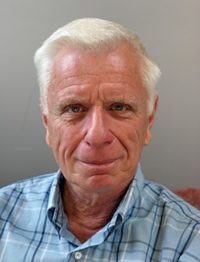A nation must think before it acts.
About the Event
 Conservatism in America has always been an unstable equilibrium and even something of an oxymoron. Traditional American conservatism actually tried to conserve what Europeans defined as liberalism, i.e., individual freedom. Traditional conservatism was discredited by the Great Depression of the 1930s, and progressivism then dominated American politics for three decades until it in turn was discredited by the Great Stagflation of the 1970s. This provided an opportunity for the reinvention of conservatism, which brought together a grand coalition of economic, religious, and foreign-policy conservatives under the leadership of Ronald Reagan. However, this reinvented conservatism was always a bundle of contradictions, and it in turn was discredited by the Great Recession that began in 2008. The 2012 elections have revealed the contradictions and weaknesses of contemporary American conservativism and its political vehicle, the Republican Party. Moreover, major demographic trends (religious, class, racial, and gender) are all moving against conservatives and Republicans. American conservatism will once again have to be reinvnented and the Republican Party will have to appeal to new constituencies or they, like the Federalists, Whigs, and traditional conservatives before them, will disappear or be eclipsed.
Conservatism in America has always been an unstable equilibrium and even something of an oxymoron. Traditional American conservatism actually tried to conserve what Europeans defined as liberalism, i.e., individual freedom. Traditional conservatism was discredited by the Great Depression of the 1930s, and progressivism then dominated American politics for three decades until it in turn was discredited by the Great Stagflation of the 1970s. This provided an opportunity for the reinvention of conservatism, which brought together a grand coalition of economic, religious, and foreign-policy conservatives under the leadership of Ronald Reagan. However, this reinvented conservatism was always a bundle of contradictions, and it in turn was discredited by the Great Recession that began in 2008. The 2012 elections have revealed the contradictions and weaknesses of contemporary American conservativism and its political vehicle, the Republican Party. Moreover, major demographic trends (religious, class, racial, and gender) are all moving against conservatives and Republicans. American conservatism will once again have to be reinvnented and the Republican Party will have to appeal to new constituencies or they, like the Federalists, Whigs, and traditional conservatives before them, will disappear or be eclipsed.
James Kurth is the Claude Smith Professor Emeritus of Political Science at Swarthmore College, where he is also a Senior Research Scholar. Prof. Kurth has been a visiting member of the Institute for Advanced Study (Princeton, New Jersey), visiting professor of political science at the University of California at San Diego, and visiting professor of strategy at the U.S. Naval War College. Prof. Kurth is the author of numerous articles and editor of two volumes in the fields of defense policy, foreign policy, international politics, and European politics. His recent publications have focused upon the interrelations between the global economy, cultural conflicts, foreign policy, and military strategy. He is also a member of the Council on Foreign Relations (New York) and of the International Institute for Strategic Studies (London).
4:30 p.m. – 6:00 p.m. followed by dinner
Venue
FPRI
123 S. Broad St, Suite 1920
Philadelphia. PA. US. 19109
Registration
Reservations are required. RSVP: events@fpri.orgOpen to university faculty and to FPRI Members at the Fellows Level ($1000).For more information contact 215 732 3774, ext 303 or events@fpri.org.
Speakers




